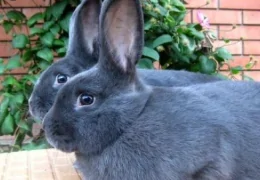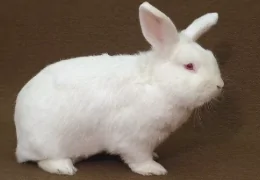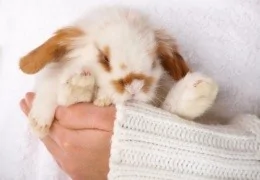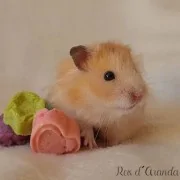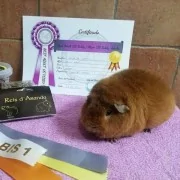Its name says it all: the Vienna blue rabbit comes from Austria. Not only is it beautiful with its shiny blue-grey...
THE GREAT IMPORTANCE OF SOCIALISATION IN SMALL PETS
WHAT IS SOCIALISATION?
Socialisation is a fundamental part of the correct development of an animal, especially in its infant stage (from birth to weaning) and juvenile stage (puppy and adolescent). Socialisation consists of introducing the animal to different places, contexts, environments, sounds and smells, as well as allowing it to interact with people and animals of all kinds and species that it might normally encounter in its new home or daily life; in this way, the animal understands that the presence of this visual or auditory stimulus is completely normal and, once it is in a new environment (a new home, travel...) it does not cause it fear or stress.
While the breed/species itself and its life experiences greatly influence the character of an animal, socialisation is key to ensuring that they are properly stimulated and not reactive or fearful.
However, this socialisation is not always easy. Sometimes, due to lack of knowledge, owners make mistakes that hinder the process.
SOCIALISATION IN SMALL PETS
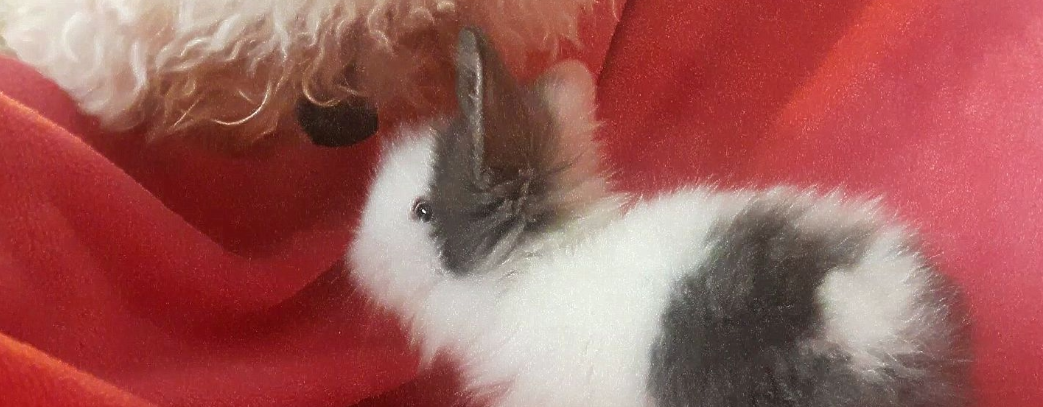
(Baby bunny next to an adult Bichon Frisé dog)
All pets in general need to be socialised, but when we are talking about animals that are originally prey animals such as small pets, this takes on greater weight and importance.
Rabbits, guinea pigs, rats or hamsters are very nervous animals that, if not well socialised, can become fearful, aggressive and prone to stress.
This point (socialisation and low levels of fear and stress in new environments) is another of the things that clearly differentiate an animal bred by an unqualified person (macro-farm, "juntanimales"...) from one bred by an ethical breeder.
In the case of rabbits or guinea pigs, socialisation begins at birth, whereas in hamsters or rats it begins once they open their eyes and it is safe to handle them.
It is very important that the mother is sociable and trusts her carer, because if the mother is surly, fearful or reactive, the socialisation process of the offspring will be very complex, and she may "infect" them with undesirable vices.
EARLY SOCIALISATION
What is "early socialisation"?
Early socialisation" is defined as socialisation from the time of birth until the animal's ears and eyes are open (which does not apply to guinea pigs, as they are born hearing and seeing).
The first step is smell and touch.
Let's focus on rabbits. They are born blind, deaf and bald and, in the case of macro-farms, they only know the smell of their mother and siblings, then, once they leave the nest and can see and hear, they only know humans when they are fed or weaned to be sent to a conventional shop. They do not know if that two-legged creature is harmful, they do not know if that "barking" is dangerous and, when faced with excited children or typical everyday noises (driving in a car, hoovers, music...) they run to hide, squeal with fear or, in the worst cases, become ill.
On the other hand, when a rabbits is born in the home of an ethical breeder, it already knows the smell of the human being from the very first moment. The human takes it gently, checks its mouth carefully, its legs, tail, belly.... They caress it so that it associates that smell with something pleasant, something that is good for it and on which it ends up falling asleep; sometimes, something that is almost "maternal" because it helps it by feeding it with the mother on its lap or with a syringe.
Many of these ethical breeders have dogs or cats, animals that know how to behave and respect the rabbits, the ethical breeders bring the pups close to them so that they can pick up the "new" smell, and then come more cuddling.
A "new" smell that brings with it something "nice".
Once they start to open their ears, it is time for them to get used to the barking and voices, the mother is not stressed and they are sleeping inside a carrier or storage box on a small table in the living room; these are noises that do not harm them, they are still sleeping.
Some ethical breeders even play a music player with everyday sounds: car sounds, fireworks, thunderstorms....
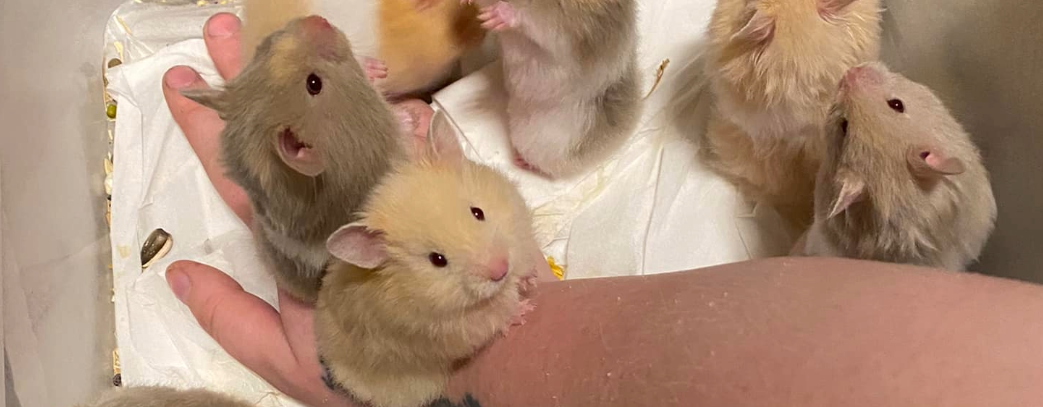
(Syrian hamster hatchlings from the ethical breeder "Best of Fluffy Hamstery" - Czech Republic)
When they open their eyes and can see the world, they approach people, dogs or cats without any problems, looking for the affection they have received all those days.
Once the bunny is weaned (between 45 and 60 days of age), everything new is familiar and the chances of it becoming frightened or reacting badly to its new home are extremely minimal.
SOCIALISATION AND HEALTH
It is a well-established fact that stress seriously affects not only our own health but also that of our animals.
An animal that is not socialised will be more fearful, nervous and reactive, which can lead to various medical problems arising from the same stress:
- Intestinal stoppages
- Heart attacks
- Abortions
- Cannibalism (in the case of mothers)
- Lowered defences
- E.CUNI (due to lowered defences)
- Mental problems (self-mutilation, aggression due to fear...)
- Panic and associated accidents (for example: blows against furniture, walls or doors which can be fatal).
- Mites (and scabies if it progresses too far).
CONCLUSION
Socialisation is essential for the well-being of our pets, making living with them much easier and more pleasant.
If our pet (whatever animal it is) comes from an ethical breeder who breeds in a family way, this process will be much easier, but we must never forget to follow his advice and continue the work he has already done. If our pet is well socialised, not only will it be happier and healthier, but we will be happier too.
(Header photo: English Angora baby bunny owned by ethical breeder Lapins Lili Toon's - France)
Leave a comment
Log in to post comments
Comments
Bien explicado
By: Rosa Mari C. On 05/16/2024Me a gustado muxo el artículo, bien explicado .
éleveur aimant
By: Óscar On 05/16/2024Lorsqu'un animal provient d'un éleveur aimant et dévoué, il est très perceptible.... Je suis d'accord avec les autres commentaires
Si tienes que comprar que sea en un buen sitio
By: Carolina On 05/16/2024Siempre hay que adoptar antes que comprar, pero existe la libertad y siempre que el animal venga de un buen sitio y sea amado...
La diferencia está clara
By: Dylan On 05/16/2024Se nota la diferencia cuando un animal está bien socializado y cuando no lo han tocdo ni con palo cuando era pequeño.
A great article
By: Steve On 05/05/2024A great article. I loved it because you are absolutely right, there is nothing to do with a pet that comes from a specialist, professional and humane breeder than from a farm. What the politicians have to do is to give facilities to the small ethical breeders and prohibit the macro farms.






